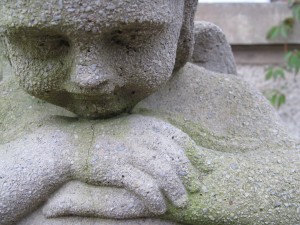“It is hard to extend compassion to ourselves when others are not doing the same.”
It is hard to learn to actively offer compassion to ourselves, to advocate for ourselves.
We are given so many messages that say we are supposed to wait for others to discover our needs and find the compassion and courage to advocate for us.
And we are fed so many messages that say we are over-reacting when we speak our genuine pain and suffering because it may not look like the pain and suffering of those around us. (I heard this one just today… OUCH!)
It is hard to extend compassion to ourselves when others are not doing the same. It’s hard to believe it’s okay to activate that self-compassion and protect ourselves or advocate for our needs.
Some of us have been taught (rather mis-taught) from the Bible that God prefers for us to be passive victims.
But passivity and victimization are not what we find highlighted and affirmed in the stories of women in the Bible.
What about the woman with the hemorrhage? She had been through so very much spending all she had paying others to heal her, to become her advocate, and she was only worse. So, she extended compassion to herself. She broke the purity rules. She reached out and touched Jesus. She became her own advocate and found healing.
Jesus called it faith.
And what about Hannah? She had suffered so many years under Peninah’s abuse. Once she stood, found her voice and went her way, she declined her husband’s invitation to go back to the temple where her abuse had occurred. She had compassion on her own pain, became her own advocate, and said “no.” She only went when she was ready.
Her song inspired Mary’s Magnificat.
And what about Mary, the mother of Jesus? After she heard the angel’s promise and opened herself to the power of the Most High God, she had compassion on herself and ran to be with her cousin Elizabeth. Likely, not a small or easy journey. And certainly, no one understood the need. Self-compassionately, she sought out the older woman’s affirmation, wisdom, and protection, helping her face all that was ahead.
Her song is still sung by us today, a celebration of the upside down world of God’s kingdom.
And what about Mary Magdalene in the garden? She felt compassion on her own grief, moving toward the tomb to tend Jesus’ body. When she did not find him there, she ccompassionately advocated for herself, asking the gardener where they had moved his body.
Jesus said, “Mary” and offered her the privilege of announcing his resurrection to all.
I could go on…
Learning to extend active compassion to ourselves by choosing to advocate for ourselves may well be no fun… like tending the muck at the bottom of the pond that can give rise to amazing beauty. I think maybe it just might be worth the effort.
Where do you need some active self-compassion?











